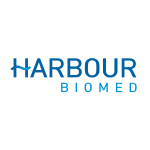Research Published in Nature Communications is Initial Step Towards Developing Fully Human Antibody Therapeutics and Diagnostics for Respiratory Disease COVID-19
UTRECHT & ROTTERDAM, The Netherlands & CAMBRIDGE, Mass. & SUZHOU, China–(BUSINESS WIRE)–Researchers at Utrecht University, Erasmus Medical Center and Harbour BioMed (HBM) today reported that they have identified a fully human monoclonal antibody that prevents the SARS-CoV-2 (COVID-19) virus from infecting cultured cells. The discovery, published online today in Nature Communications, is an initial step towards developing a fully human antibody to treat or prevent the respiratory disease COVID-19 caused by the novel coronavirus SARS-CoV-2.
The COVID-19 pandemic has spread rapidly across the globe infecting more than 3.5 million people worldwide and killing more than 245,000 people so far.
“This research builds on the work our groups have done in the past on antibodies targeting the SARS-CoV that emerged in 2002/2003,” said Berend-Jan Bosch, PhD, Associate Professor, Research leader at Utrecht University, and co-lead author of the Nature Communications study. “Using this collection of SARS-CoV antibodies, we identified an antibody that also neutralizes infection of SARS-CoV-2 in cultured cells. Such a neutralizing antibody has potential to alter the course of infection in the infected host, support virus clearance or protect an uninfected individual that is exposed to the virus.”
Dr. Bosch noted that the antibody binds to a domain that is conserved in both SARS-CoV and SARS-CoV-2, explaining its ability to neutralize both viruses. “This cross-neutralizing feature of the antibody is very interesting and suggests it may have potential in mitigation of diseases caused by future-emerging related coronaviruses.”
“This discovery provides a strong foundation for additional research to characterize this antibody and begin development as a potential COVID-19 treatment,” said Frank Grosveld, PhD, co-lead author on the study, Academy Professor of Cell Biology, Erasmus Medical Center, Rotterdam and Founding Chief Scientific Officer at Harbour BioMed. “The antibody used in this work is ‘fully human,’ allowing development to proceed more rapidly and reducing the potential for immune-related side effects.” Conventional therapeutic antibodies are first developed in other species and then must undergo additional work to ‘humanize’ them. The antibody was generated using Harbour BioMed’s H2L2 transgenic mouse technology.
“This is groundbreaking research,” said Dr. Jingsong Wang, Founder, Chairman & Chief Executive Officer of HBM. “Much more work is needed to assess whether this antibody can protect or reduce the severity of disease in humans. We expect to advance development of the antibody with partners. We believe our technology can contribute to addressing this most urgent public health need and we are pursuing several other research avenues.”
The paper is titled, “A human monoclonal antibody blocking SARS-VoV-2 Infection.” In addition to Drs. Bosch and Grosveld, authors on the paper included: Chunyan Wang, Wentao Li and Frank van Kuppeveld of Utrecht University; Nisreen Okba and Bart Haagmans of Erasmus Medical Center (Rotterdam); Dubravka Drabek and Rien van Haperen of Erasmus Medical Center and Harbour Antibodies; and Albert Osterhaus of the University of Veterinary Medicine (Hannover, Germany).
https://www.nature.com/articles/s41467-020-16256-y
About Utrecht University
Founded in 1636, Utrecht University is one of the largest research universities of Europe, with over thirty thousand students and a staff of more than six thousand. We invest in creating the leaders of the future through innovative education of the highest quality, as reflected by the University’s consistently high position in international rankings. Dedicated to performing groundbreaking research aimed at resolving large global issues, our culture of cooperation is a breeding ground for innovation, new insights and social impact. www.uu.nl.
About EMC
Erasmus MC is the largest University Medical Center in the Netherlands. Our primary goal is a healthy population. Nearly 14,000 employees devote themselves every day to providing outstanding care, facilitating world-class education and conducting pioneering research. These professionals are instrumental in developing expertise on health and illness. They link the latest scientific insights to practical treatments and prevention measures to provide maximum benefit to patients and to enable healthy people to stay healthy longer. Being visibly better and leading the way in the areas of complex, innovative and acute care by collaborating with others: these are key ambitions at Erasmus MC.
About Harbour BioMed
Harbour BioMed is a global, clinical stage biopharmaceutical company developing innovative therapeutics in the fields of immuno-oncology and inflammatory diseases. The company is building its proprietary pipeline through internal R&D programs, collaborations with co-discovery and co-development partners and select acquisitions.
The company’s internal discovery programs are centered around its two patented transgenic mouse platforms (Harbour Mice®) for generating both fully human monoclonal antibodies and heavy chain only antibodies (HCAb) and HBICE™ immune cell engager technology for developing bispecific antibodies. Harbour BioMed also licenses the platforms to companies and academic institutions. The company has operations in Cambridge, Massachusetts; Rotterdam, The Netherlands; and Suzhou & Shanghai, China. For more information, please visit www.harbourbiomed.com
Contacts
Media Contacts:
Utrecht University
Myrna Tinbergen,
Press Officer
Phone: +31 6 512 910 80
E-mail: [email protected]
Erasmus MC
David Drexhage,
Press Officer
Phone: +31 10 703 55 25
E-mail: [email protected]
Harbour BioMed
Atul Deshpande PhD, MBA
Chief Strategy Officer and Head, US Ops.
Harbour BioMed
Phone: +1-908-210-3347
E-mail: [email protected]







